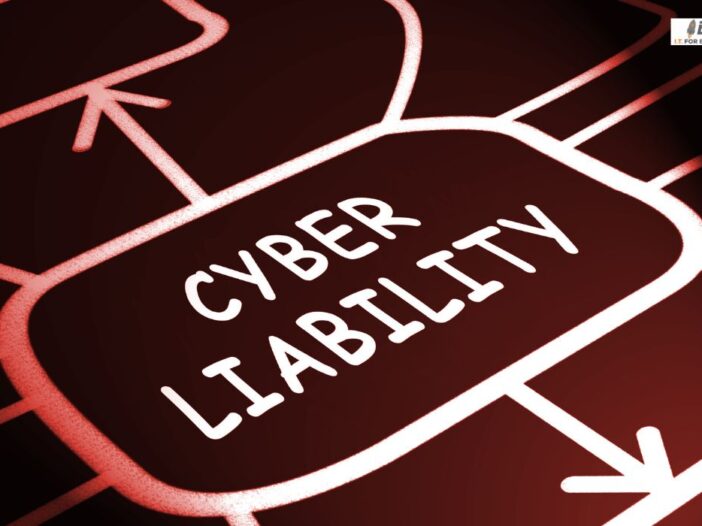
In today’s digital age, where businesses heavily rely on technology, the threat of cyber attacks looms large. New Cyber Liability Insurance Questions have emerged as a crucial aspect of ensuring comprehensive protection against these evolving threats.
To mitigate potential risks, many companies are turning to cyber liability insurance.
This specialized coverage helps protect against the financial fallout from data breaches, cyber extortion, and other cyber-related incidents.
However, obtaining this insurance involves a comprehensive evaluation of a company’s digital infrastructure and practices.
When seeking cyber liability insurance, expect a thorough interrogation from insurance providers.
To streamline the process and better prepare potential policyholders.
Here are 17 new cyber liability insurance questions that your provider is likely to ask:
Network Security Measures
What security protocols and measures does your company have in place to safeguard its network against cyber threats?
Data Encryption Practices
How is sensitive data encrypted and stored within your systems?
Patch Management Procedures
How frequently are software updates and patches applied to your systems to address vulnerabilities?
Incident Response Plan
Do you have a documented incident response plan to mitigate and address cyber incidents promptly?
Employee Training Programs
What cybersecurity training programs do you provide to your employees to promote awareness and best practices?
Vendor Management Protocols
How do you assess and ensure the cybersecurity practices of third-party vendors and partners?
Data Retention Policies
What are your data retention and disposal policies to minimize exposure to cyber risks?
Business Continuity Planning
How prepared is your company to maintain operations in the event of a cyber-attack or system breach?
Previous Cyber Incidents
Have you experienced any previous cyber incidents, and if so, how were they resolved?
Employee Access Controls
How are employee access controls managed within your systems to prevent unauthorized access to sensitive data?
Insurance Coverage History
What cyber liability insurance coverage have you had previously, if any, and are there any outstanding claims?
Compliance with Regulations
How does your company comply with industry-specific regulations regarding data security and privacy?
Risk Assessment Procedures
What procedures do you follow to conduct regular risk assessments of your IT infrastructure?
Monitoring and Detection Systems
What systems are in place for monitoring and detecting potential cyber threats or unusual activities?
Cloud Service Security
If your company utilizes cloud services, how is the security of these services ensured?
Cybersecurity Investments
What investments has your company made recently in cybersecurity infrastructure and technologies?
Cyber Insurance Needs
What specific coverage limits and requirements are you seeking in your cyber liability insurance policy?
As the cyber threat landscape evolves, insurance providers are adapting their assessment criteria to ensure comprehensive coverage for their clients.
Being prepared to address these questions demonstrates a commitment to cybersecurity and can help in acquiring the most suitable cyber liability insurance coverage for your business’s unique needs.
Conclusion
In conclusion, securing robust cyber liability insurance is paramount in today’s digital landscape.
The depth and breadth of coverage offered by insurance providers hinge upon a detailed understanding of your company’s cybersecurity infrastructure and practices.
Navigating the process requires a thorough assessment of various aspects, from network security measures to incident response plans and compliance with industry regulations.
Each of these facets plays a crucial role in determining the adequacy of coverage for potential cyber risks.
When engaging with insurance providers, being well-prepared to address their inquiries, as outlined in the earlier 17 cyber liability insurance questions, sets the stage for a comprehensive policy that aligns with your business’s specific needs.
For further assistance in fortifying your cybersecurity practices or understanding how to prepare for cyber liability insurance assessments, feel free to reach out to our experts at Boost IT Co.
Strengthening your cyber defenses today is an investment in safeguarding your business from the unforeseen cyber threats of tomorrow.
FAQs
What does cyber liability insurance cover?
Cyber liability insurance typically covers expenses related to data breaches, cyber extortion, legal fees, notification costs, and damages resulting from cyber incidents. It may also provide coverage for business interruption and cyber extortion payments.
Who needs cyber liability insurance?
Any business that stores sensitive data conducts transactions online or relies on computer systems for its operations can benefit from cyber liability insurance. This includes small businesses, large corporations, healthcare providers, financial institutions, and more.
How much cyber liability insurance coverage do I need?
The amount of coverage needed depends on various factors, including the size of your business, the industry you operate in, the volume of sensitive data you handle, and potential cyber risks. Assessing these factors with an insurance provider can help determine adequate coverage.
Are there specific exclusions in cyber liability insurance policies?
Exclusions can vary among policies, but standard exclusions may include losses due to unencrypted devices, intentional illegal acts, and certain types of cyber attacks that might be considered acts of war or terrorism. It’s crucial to understand the policy’s exclusions.
How does cyber liability insurance differ from general liability insurance?
General liability insurance primarily covers bodily injury, property damage, and personal injury claims. Cyber liability insurance, in contrast, specifically protects against financial losses and liabilities arising from data breaches, cyber-attacks, and related incidents.
What steps can I take to lower cyber liability insurance premiums?
Implementing robust cybersecurity measures, conducting regular risk assessments, providing employee training, and having a comprehensive incident response plan in place can lower premiums by demonstrating proactive risk management.
Does cyber liability insurance cover regulatory fines and penalties for non-compliance?
Some policies may include coverage for regulatory fines and penalties resulting from a covered cyber incident, but it’s essential to review policy details to understand specific coverage in this regard.
How long does it take to get cyber liability insurance coverage?
The time to obtain coverage can vary based on the complexity of your business operations, the information needed for assessment, and the underwriting process of the insurance provider. Generally, it can take a few weeks to complete the process.


